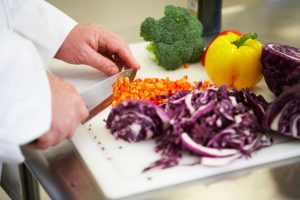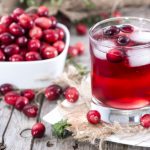 Chronic kidney disease is a condition affecting close to 20 million Americans. Kidney specialists (nephrologists) suggest that changing your diet can help protect your kidneys. Diet can also help control other health conditions, such as diabetes and high blood pressure, which in fact can lead to kidney problems.
Chronic kidney disease is a condition affecting close to 20 million Americans. Kidney specialists (nephrologists) suggest that changing your diet can help protect your kidneys. Diet can also help control other health conditions, such as diabetes and high blood pressure, which in fact can lead to kidney problems.
If you suffer from kidney disease, paying close attention to what you eat and drink could help you stay healthier. Renal dieticians can help design a specific chronic kidney disease diet plan, but there are some basic guidelines that people with the disease should know about.
Advertisement
It’s important for those with chronic kidney disease to maintain a healthy weight and eat a well-balanced diet that is low in salt and fat. A chronic kidney disease diet menu limits certain foods to prevent minerals that could cause further damage from building up in your body.
No matter what is on your chronic kidney disease diet food list, you need to keep track of your nutrient intake. For example, monitor the calories, protein, fat, and carbohydrates. “Nutrition Facts” labels are the quickest and easiest guideline to follow. Making good food choices will allow you to have energy to perform daily tasks, prevent infection, build muscle, maintain a healthy weight, and keep your kidney disease from worsening.
Recommendations for chronic kidney disease diet
Some people with kidney disease have trouble processing protein and may need substitutes. When a low-protein diet is suggested by a healthcare professional, you will need to replace those calories from protein with fruits, bread, grains, and vegetables. There are even cases where you can consume high-calorie desserts as long as you limit items that are made with dairy, chocolate, nuts, or bananas.
Let’s look at some important recommendations, including chronic kidney disease diet restrictions:
- Fats – Use monounsaturated and polyunsaturated fats such as olive oil, canola oil, and safflower oil.
- Protein – Just prior to starting dialysis, a low-protein diet may be helpful. Once you’ve started dialysis, you will likely need to eat more protein to replace muscle and tissue that you lose. About eight to 10 ounces of high protein foods per day is recommended.
- Calcium and phosphorus – Limiting some dairy foods may be suggested, since they can contain large amounts of phosphorus. Colas and soft drinks also have a lot of phosphorus. Calcium supplements may be a good idea to help prevent bone problems.
- Sodium – Do not add salt to any food. Read food labels to find hidden salt and avoid those foods that contain a lot of salt, sodium, or MSG. Be careful with salt substitutes, as many have high amounts of potassium.
- Potassium – It is best to choose low potassium fruits such as apples, pears, plums, and blueberries. Vegetables, such as bean sprouts, cabbage, green beans, and lettuce are also low in potassium.
- Fluids – As kidney disease gets worse, you may have to limit fluid intake, so keep track of how much you drink and find ways to reduce fluids if you need to. Remember soups, gelatin desserts, and ice cream are all considered fluids.
Common sense should rule when eating. For example, you shouldn’t skip meals. If there are times when you just don’t feel hungry, at least try to eat four or five small meals instead of one or two big ones. There may be some people with kidney problems that have difficulty keeping their weight up. These individuals need to talk to their doctors and dieticians about the best ways to add calories to their diet. Anyone with chronic kidney disease should also talk to a physician before drinking any alcohol.
Foods to eat with chronic kidney disease
 Several studies have linked “super foods” to preventing and protecting against chronic diseases. Foods that contain antioxidants seem to neutralize free radicals and protect against oxidation, which is a process of energy production and chemical reactions that can lead to free radicals. It is believed that free radicals damage proteins and cell membranes.
Several studies have linked “super foods” to preventing and protecting against chronic diseases. Foods that contain antioxidants seem to neutralize free radicals and protect against oxidation, which is a process of energy production and chemical reactions that can lead to free radicals. It is believed that free radicals damage proteins and cell membranes.
Based on the oxidation theory, kidney-friendly foods are the same foods that can reduce inflammation and lower the risk of cardiovascular disease.
Here are some examples of foods that you might find on a chronic kidney disease diet menu:
- Red bell peppers – Low in potassium and full of vitamins C, A, B6, as well as folic acid and fiber.
- Cauliflower – High in vitamin C, a source of folate, a source of fiber, and full of compounds that could neutralize toxic substances in the body.
- Cabbage – Full of a compound that can break up free radicals.
- Garlic – Reduces inflammation and can lower cholesterol.
- Apples – High in fiber and anti-inflammatory compounds.
- Cranberries – Promote gastrointestinal health.
- Blueberries – High in antioxidants and manganese, which promotes bone health.
- Cherries – Contain anti-inflammatory compounds.
- Egg whites – Pure protein with all the essential amino acids. For the chronic kidney disease diet, egg whites provide protein with less phosphorus.
- Fish – Provides high-quality protein and contains anti-inflammatory fats called omega-3s.
Recipes for chronic kidney disease diet
There are specific chronic kidney disease diet recipes you can follow if you are concerned about maintaining a healthy routine. For example, dieticians often suggest smoothies to get just the right amount of nutrients. Some of these smoothies are hearty enough to be as filling as a full meal. The blueberry smoothie below is an example.
Blueberry Smoothie Bowl:
Ingredients
- 1 cup frozen blueberries
- 2 tablespoons whey protein powder
- 1/4 cup Greek yogurt, plain, non-fat
- 1/3 cup unsweetened vanilla almond milk
- 2 medium strawberries
- 5 raspberries
- 1 tablespoon cereal
- 2 teaspoons shredded coconut
Preparation
Place blueberries in a blender and blend on low for a minute. Add protein powder, yogurt, and almond milk. Blend to a soft-serve consistency, scoop into a bowl, and top with sliced strawberries, raspberries, high-fiber cereal, or coconut flakes.
Balancing protein can be a challenge for some people with kidney problems, but there are also recipes designed to address this. One example of a healthy protein is the easy egg salad recipe below.
Egg Salad:
Ingredients
- 4 large eggs
- 1/4 cup celery
- 1/2 cup sweet onion
- 2 tablespoons sweet pickle relish
- 3 tablespoons mayonnaise
- 1 tablespoon yellow mustard
- 1 tablespoon salt-free seasoning blend or fresh herbs
Preparation
Hard boil the eggs for 8 minutes. Turn the heat off and leave eggs in water for 2 additional minutes. Peel the eggs and chop or grate to desired consistency.
Chop celery and onion or chop in a food processor until finely chopped. Place in a colander and add relish. Drain well to remove liquid. Shake colander to get as much liquid out as possible.
In a medium bowl mix all ingredients together until well blended. Chill about an hour in the refrigerator before consuming.
These are just a couple examples, but there are many different kidney-friendly recipes you can get from a qualified dietician.
Tips to prevent chronic kidney disease
 It is true that sometimes kidney disease can’t be avoided, but you can certainly take steps to reduce your risk of developing kidney problems. One way to take care of your kidney health is to avoid smoking. It can lead to heart attacks and strokes, which are associated with a higher risk of kidney issues.
It is true that sometimes kidney disease can’t be avoided, but you can certainly take steps to reduce your risk of developing kidney problems. One way to take care of your kidney health is to avoid smoking. It can lead to heart attacks and strokes, which are associated with a higher risk of kidney issues.
Advertisement
You already know how important diet is, but so is exercise. Regular exercise can keep your blood pressure under control and help you maintain a healthy weight, which can reduce the risk of kidney disease. Kidney disease specialists also suggest that you limit alcohol to no more than 14 units per week. This is the equivalent of six pints of beer or 10 small glasses of wine. This is just a general guideline – remember those with underlying health conditions may need to have a stricter alcohol limit.
Sadly, many people don’t realize that kidney disease can be caused by medications. Taking too many non-steroidal anti-inflammatories, including those that are available over the counter, can cause kidney disease. Taking medications longer than recommended can also lead to kidney problems. Be sure to follow medication instructions carefully.
Kidney disease only gets to the advanced stage in a small proportion of people, but it is important to know that the damage from chronic kidney disease can’t be repaired. The good news is, your condition won’t necessarily get worse if you take steps to enforce a healthy lifestyle that includes eating the right foods.
